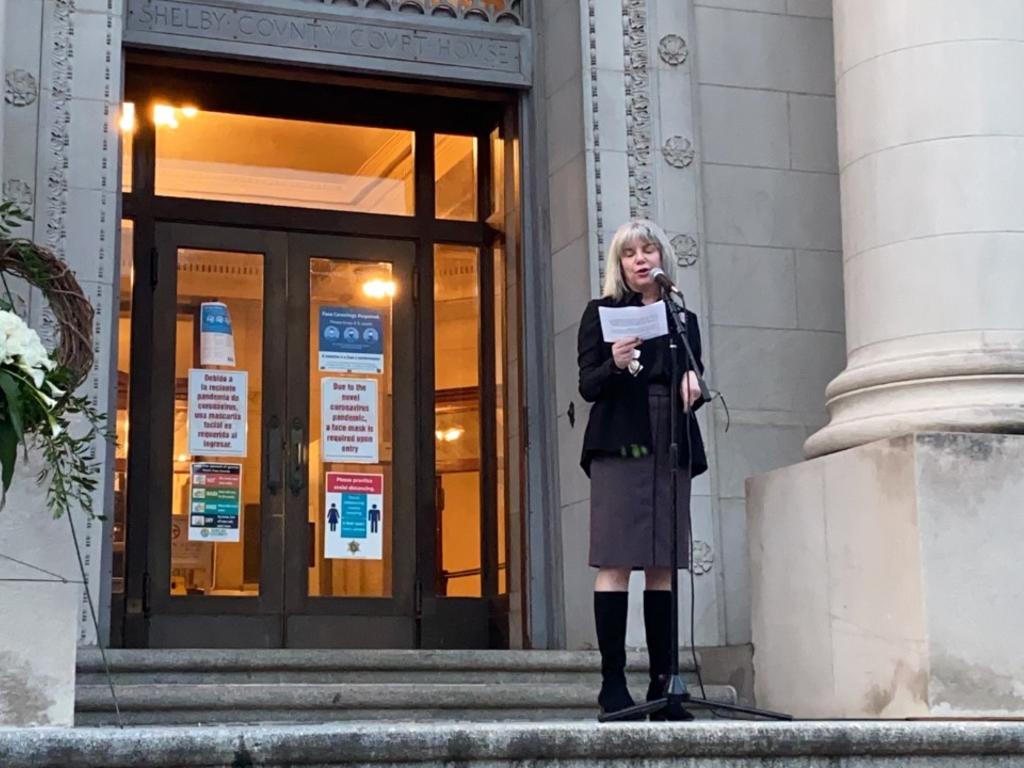September 22, President Marjorie Hass joined leaders in the Memphis community to honor the life and legacy of Justice Ruth Bader Ginsburg. These are the remarks she shared:
I am grateful to the organizers of this even for inviting me to make remarks. And I am honored to share the stage with such talented Memphians.
In 1959, Justice Ginsburg was 26 years old. She had just graduated first in her class from law school. She had stellar accomplishments and the highest recommendations. Nonetheless, she couldn’t find a job. No one would hire her. In speaking of that time, Justice Ginsburg said: “I had three strikes against me: one, I was Jewish. Two, I was a woman. But the killer was I was a mother of a four-year-old child.”
34 years later in 1993, I was a 26-year-old and a newly minted PhD. I was Jewish, I was a woman. And I was the mother of a four-year-old child. But, by then, none of those factors were reasons that I could be legally discriminated against in my education or in my employment. I was afforded a set of legal protections that simply hadn’t been available to American women in previous generations.
My path and the path of almost every woman I know, was made easier, fairer, and less painful by what Justice Ginsburg had accomplished in the years between her 27th year and my 27th year and throughout the years to the 27-year-olds of today. Her on-going commitment to removing one artificial barrier after another, to opening the doors of colleges, of playing fields, and offices to women, has remade the world in which we as women live and work.
That is the kind of difference a life devoted to justice makes.
We know that removing of legal impediments doesn’t magically transform culture or climate. We know that women continue to face an uphill climb in many arenas. But we also know that without basic legal protections against discrimination, our path forward is almost impossible.
In Jewish tradition, as Rabbi Bess said, when a person dies, we pray that their life will become a blessing. That prayer is best answered when we ourselves model our actions on their virtues. So, I ask each of us tonight: What must we each of do to take up the mantle of justice? To fully acknowledge women’s agency and humanity? To expand even further the rights of life, liberty, and the pursuit of happiness to everyone in our country?
The Torah commands us: “Tzedek, tzedek, tirdof.” (“Justice, Justice, shall you pursue). And Jewish women from the biblical Deborah who judged the people of Israel, to Buriah (a sage of the Talmud and an interpreter of its laws), to Ruth Bader Ginsburg, have set us models of what that pursuit looks like and how it is done, day in and day out, over a career and a lifetime.
Tonight, we learn from and honor her legacy, and may her life and memory be for a blessing.
